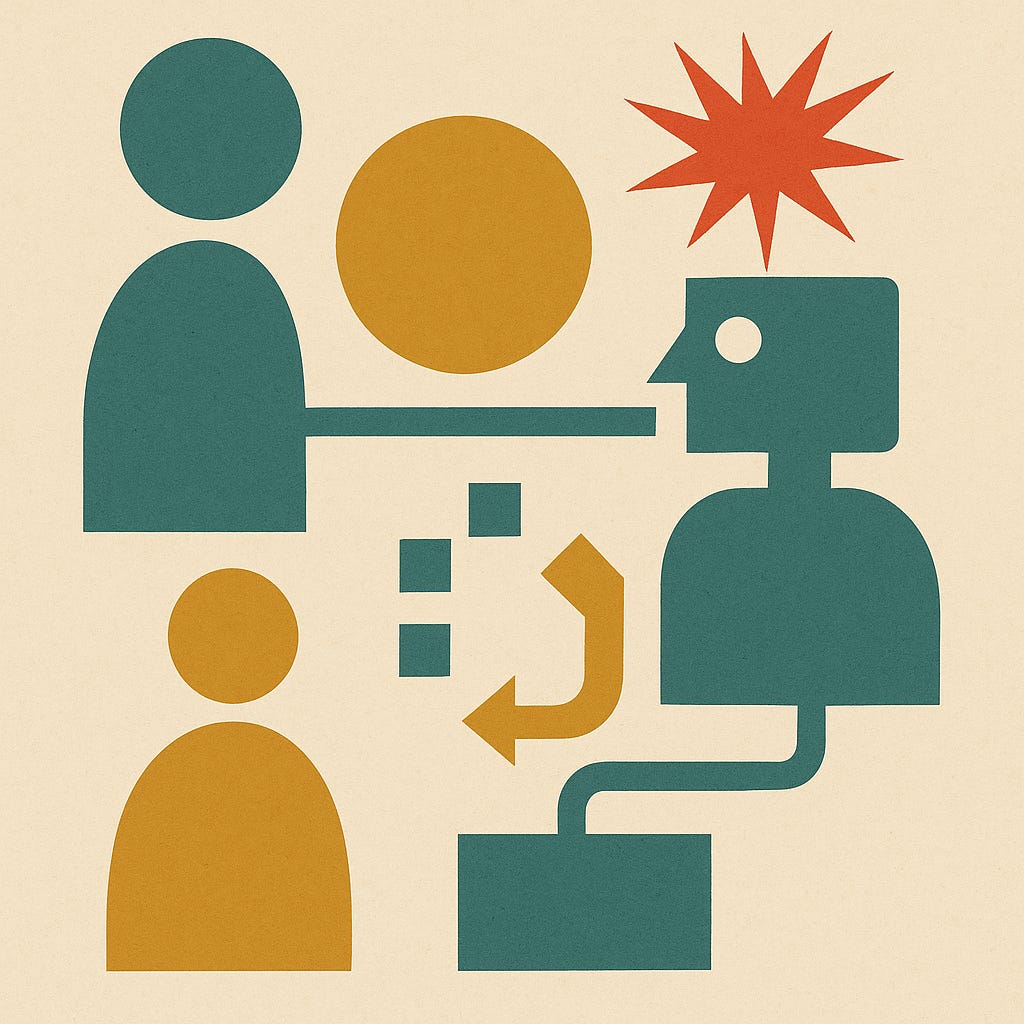Where is all the collaboration in AI?
Also a controversial product theory
As one of the creators of Google Docs, it’s frankly kind of bizarre to me that none of the AI labs have built meaningfully collaborative threads yet. And the funny thing is - I know all of them use GDocs! They have the design right in front of them!
What do I mean by collaborative? If you share a thread now, what you get (last I checked) was a static copy you could read through. There’s no easy way for two humans to interact with an LLM agent at the same time.
But more than that, we’re missing the whole suite: attachments, permissions, forking, full coediting of all of the parts of an agent, etc. It’s weird. I think it’s at least partially rooted in the early idea that chatbots are some kind of search replacement. Search has a very binary idea of ownership - everything is either private or public to the world. There’s no nuance like a private folder with other people.
The search orientation also shows up in the idea that you interact with a chatbot in a very transactional way - come, ask a question, leave. There’s very little in the direction of longitudinal, collaborative project work. Environments where a bunch of humans AND an LLM talk about a problem for long periods of time, create artifacts, share data, have side chats, and get something substantial done together. Every time I build some kind of prototype in this direction, particularly with bots that have their own rich memory state, it’s much more powerful and interesting.
So it’s really weird that none of this has been done yet. Even just the most basic ACL-based sharing. Co-editing a thread is easy! It’s last in wins! There are a few interesting problems (like, does the LLM respond to multiple people at once, or act like a person and only have one “train of thought”), but come on! It’s not that hard and would be useful.
Here’s the controversial product theory: I think the industry has largely spent the last 15 or so years not building whole products from scratch, but building features on top of large, established products and platforms. I know lots of engineers at Google who spend all of their time adding one more feature to Maps or YouTube. Building a mobile app means mostly designing inside of a well-defined platform. Same with the web - everything is stacks and stacks of opinionated frameworks, and the end result is narrow and transactional.
Ok so grumpy old dude shouting at clouds time: I think this is causing an erosion in the ability of folks to think about product design holistically. You can see this with LLM design - again, that very transactional, feature-by-feature design process. Sure, lots is going on, things are changing quickly, but beyond fine tuning for specific things like coding, there doesn’t seem to be a lot of thought going into designing for use cases, complex workflows, composability and so on. Thinking of the product as a system and doing system level design.
It might be that this kind of thinking is just hard and I am mistaken. But it do find it striking that what seems to me to be obvious, low-hanging fruit on the product side of things (where it’s cheaper and should even be vibe-codable!) is going neglected.
Or maybe I just have sharing on the brain. 😂


Thank you for this Sam! I always ask myself why products can be so difficult to use, when they really are just tools that should help. Your hypothesis is interesting and leads me to think it can be generational too. So many AI startups are capitalizing on this, but don't necessarily have the wisdom or engineers with the experience when the full product lifecycle comes into question as their products mature. Great stuff!
Yep, I am really feeling this lack of shared workspace currently.